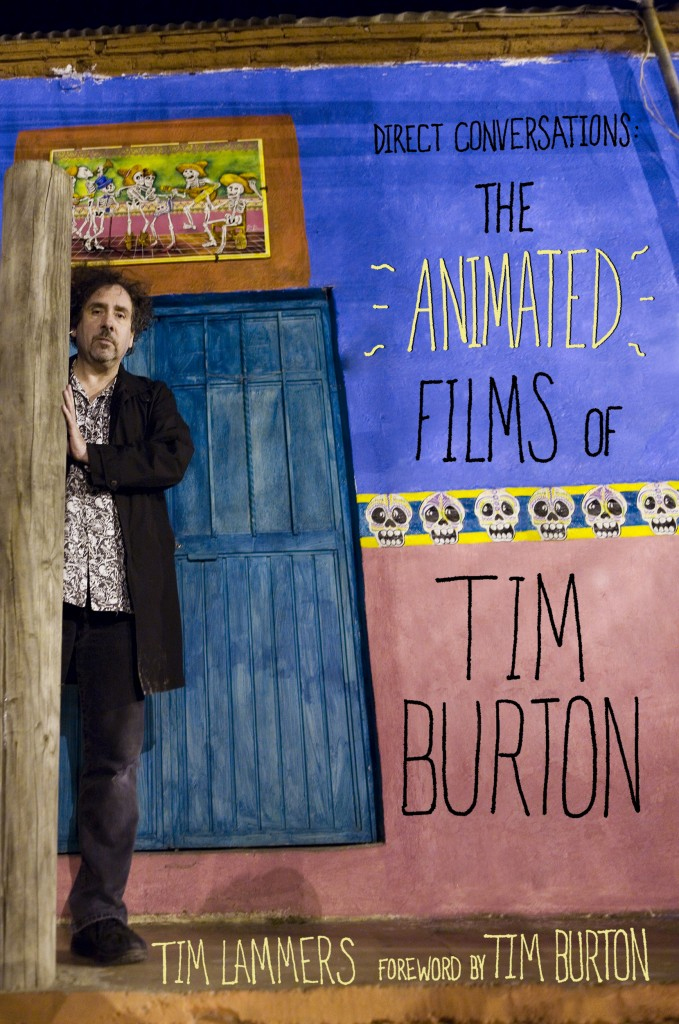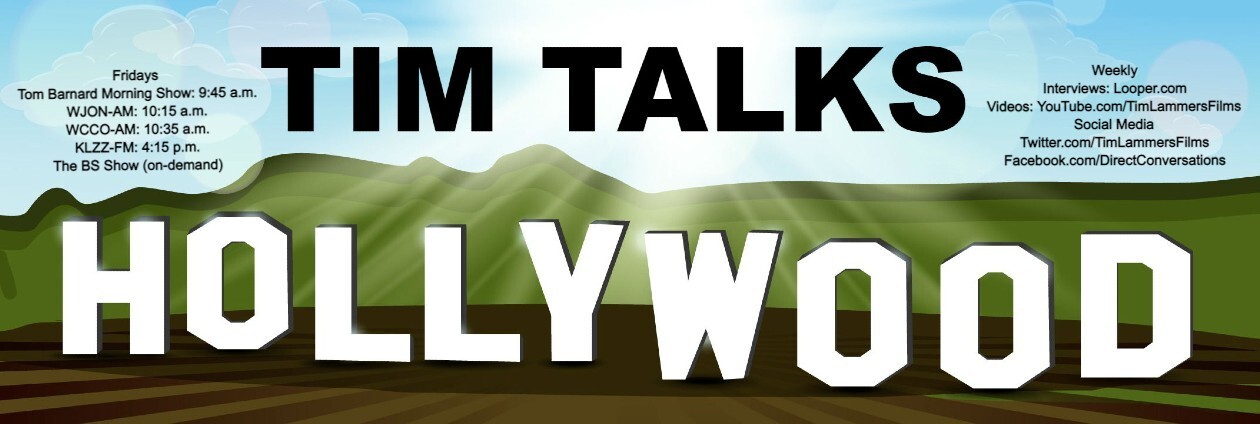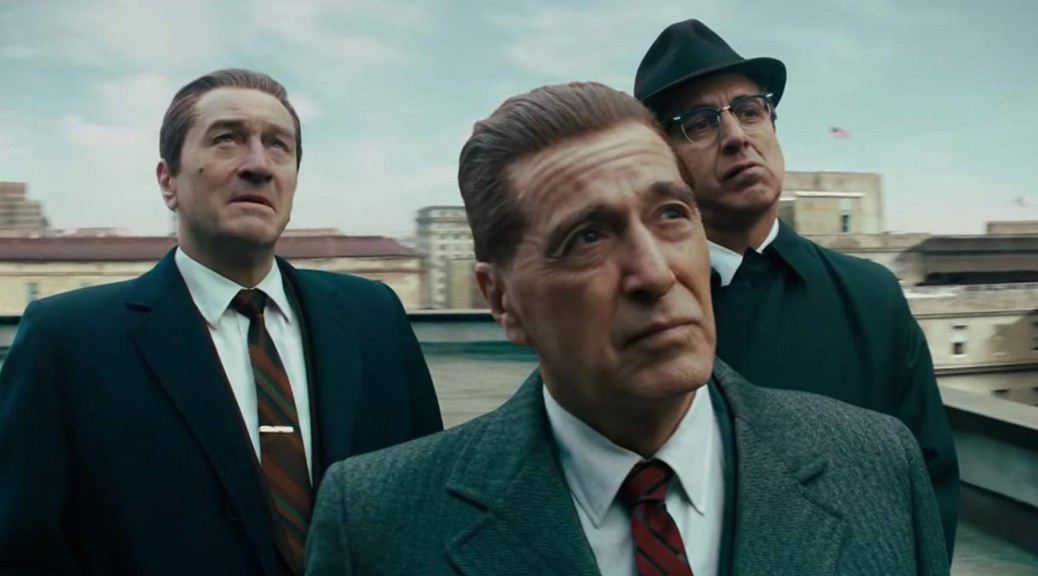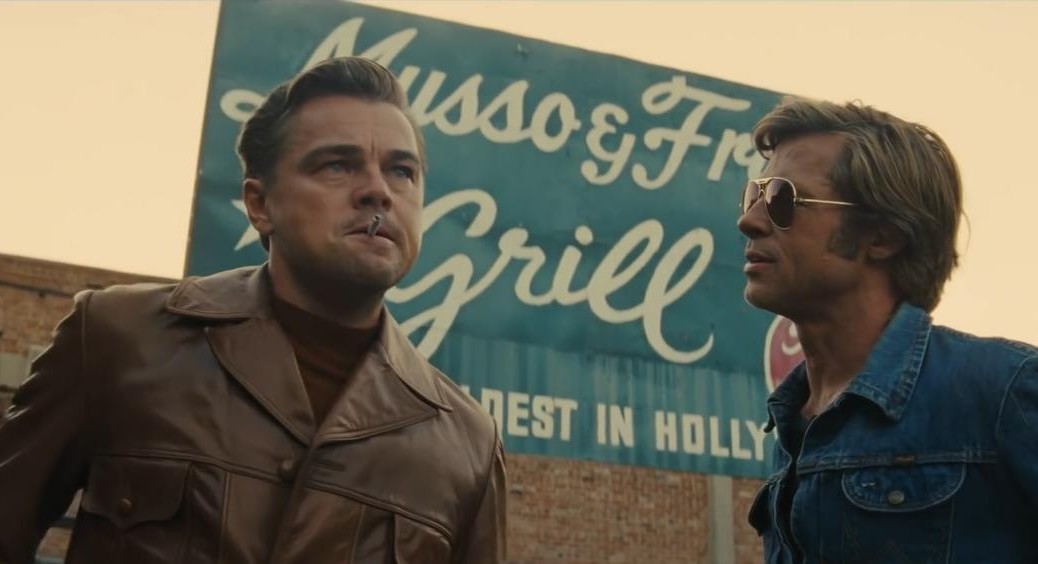“The Irishman” (R)
The cinematic worlds of Martin Scorsese and Francis Ford Coppola collide with brute force in Scorsese’s epic crime drama “The Irishman,” a in-depth look into the rise and demise of legendary Teamsters president Jimmy Hoffa and his relationship with mob heavy Frank “The Irishman” Sheeran.
Clocking in detailed yet exhaustive 3 1/2 hours, the film – made for the big screen by Netflix with the idea of attracting its main audience on its streaming platform less than 30 days after its qualifying theatrical awards run – is sure to satisfy Scorsese fans with its grand, big screen presentation, but will be digested better in chunks by its home audience. That’s not to say “The Irishman” is a TV movie (as some famous filmmakers would suggest), it’s just that Scorsese has packed so much into the film’s time frame that breaks are probably warranted to sit back and absorb the amazing chronicle of the mob and Hoffa and their influence on labor unions in the 1950s, ’60s and ‘70s, culminating in the disappearance of Hoffa and speculation as to who was actually responsible.
Longtime Scorsese collaborator Robert De Niro stars in the title role as Sheeran, a meat truck driver who by happenstance befriends Russell Bufalino (Joe Pesci), the head of an Northeastern Pennsylvania crime family who taps Sheeran as a hitman because for one, he’s loyal and would never drop names if arrested; and two, he fought in Italy in World War II and wasn’t afraid to pull the trigger on the enemy.
Rising through the ranks of the organization, Sheeran eventually is introduced to Hoffa (Coppola favorite Al Pacino in his first Scorsese film), who quickly develop an affinity for one another as Sheeran himself eventually becomes a powerful union head. But when Hoffa goes to prison for fraud stemming from witness tampering in a court case, the upper echelon of the Teamsters union changes under the rule of Frank Fitzsimmons (Gary Basaraba), and escalating conflicts with the mob spell doom for Hoffa as he tries to regain control of the powerful labor organization.
Based on the novel “I Heard You Paint Houses” by Charles Brandt and a screenplay adapted by Oscar-winning scribe Steve Zaillian (“Schindler’s List”), “The Irishman” is presented in vintage Scorsese fashion, as the lead actor (in this case, De Niro), narrates the story throughout a sprawling tale over decades. Captured within is all the narrative depth, character development, smart dialogue (complete with wry humor), classic music selections lining the background and brilliant acting that you’ve come to expect out of a Scorsese crime drama, a la “Goodfellas” and “The Departed.” Unfortunately, since Netflix gave Scorsese the keys to the cinematic kingdom to make a film as long as he wanted, “The Irishman” lumbers to the point of self-indulgence at times.
That’s not say Scorsese hasn’t earned the right to make the film that he wants, it’s just merely too much of a good thing in this case. Even slicing a half-hour from the film would have worked wonders, giving “The Departed” Oscar winner at three hours still far more time to tell his story than most of his fellow filmmakers are accustomed to.
It’s easy to see why Scorsese wanted to keep the story of “The Irishman” intact, however. The performances are hard-hitting across the board, from De Niro (who, despite being attracted to garbage like “Bad Grandpa” over the years, is clearly in his element and is at his very best under the auspices of the director) and Pacino (in yet another jaw-dropping performance) to Pesci (who shows his range in a rare, subdued performance). Quite simply, it’s a thrill to watch all three iconic performers in the same film together, since let’s be honest, chances are few that we’ll see the trio in another film ever again. The cool thing is, we get to see them at different points of their lives via the wonders of de-aging CGI, which allowed for the actors to become their younger selves.
Scorsese also gets the best from those new to his movie universe, including Ray Romano in a pivotal role as Russell Bufalino’s cousin, Bill Bufalino, a persuasive mob attorney; Jack Huston as Hoffa’s White House foe, Attorney General Bobby Kennedy; and red hot comedian Sebastian Maniscalco in a deathly serious turn as reckless mob legend Joey Gallo (Maniscalco isn’t the only comedian who turns up in the film – Jim Norton is impressive in a short turn as the young version of insult comedy great Don Rickles).
While the acting core looms large in “The Irishman,” there are some name actors who appear whose characters turns are underwhelming. Harvey Keitel has barely a presence as Philadelphia crime family boss Angelo Bruno (save one great scene where he confronts Sheeran about his hitman side work), while the talents of Anna Paquin and Jesse Plemons feel wasted as they play the adult children of Sheeran and Hoffa, respectively.
Apart from the controversy over its promised wide-turned-limited theatrical release in the continuing pissing contest between the secretive Netflix and understandably upset theater owners in the run-up to awards season, “The Irishman” is bound to run into problems over the accuracy of its story. The depiction of Hoffa’s demise (much like Danny DeVito’s “Hoffa” starring Jack Nicholson) is speculative because it’s based on rumors rather than an actual confession, which will spell trouble for the film when it comes to the Oscars and those oh-so-ugly whisper campaigns from rival studios.
For a film, at least, the argument seems plausible, and its far different than the tales of his remains being buried in the end zone of Giants stadium. At least Scorsese has the opportunity to score big points for his running tally of mobsters who get dead throughout the film, as he displays in captions in no uncertain terms how each of them most often met a cruel demise. Whether it be Hoffa or lesser-known figures in the criminal underworld, crime is a dangerous game that definitely does not pay.
Tim Lammers reviews movies weekly for “The KQ92 Morning Show” on KQRS-FM, “Paul and Jordana” on WCCO Radio, “It Matters with Kelly Cordes on WJON-AM, KLZZ-FM, “The Tom Barnard Podcast” and “The BS Show” with Bob Sansevere, and reviews streaming programming on WCCO Radio’s “Paul and Jordana” as well. On TV, Tim has made hundreds of guest appearances on “KARE 11 News at 11” (NBC).
Copyright 2019 DirectConversations.com




